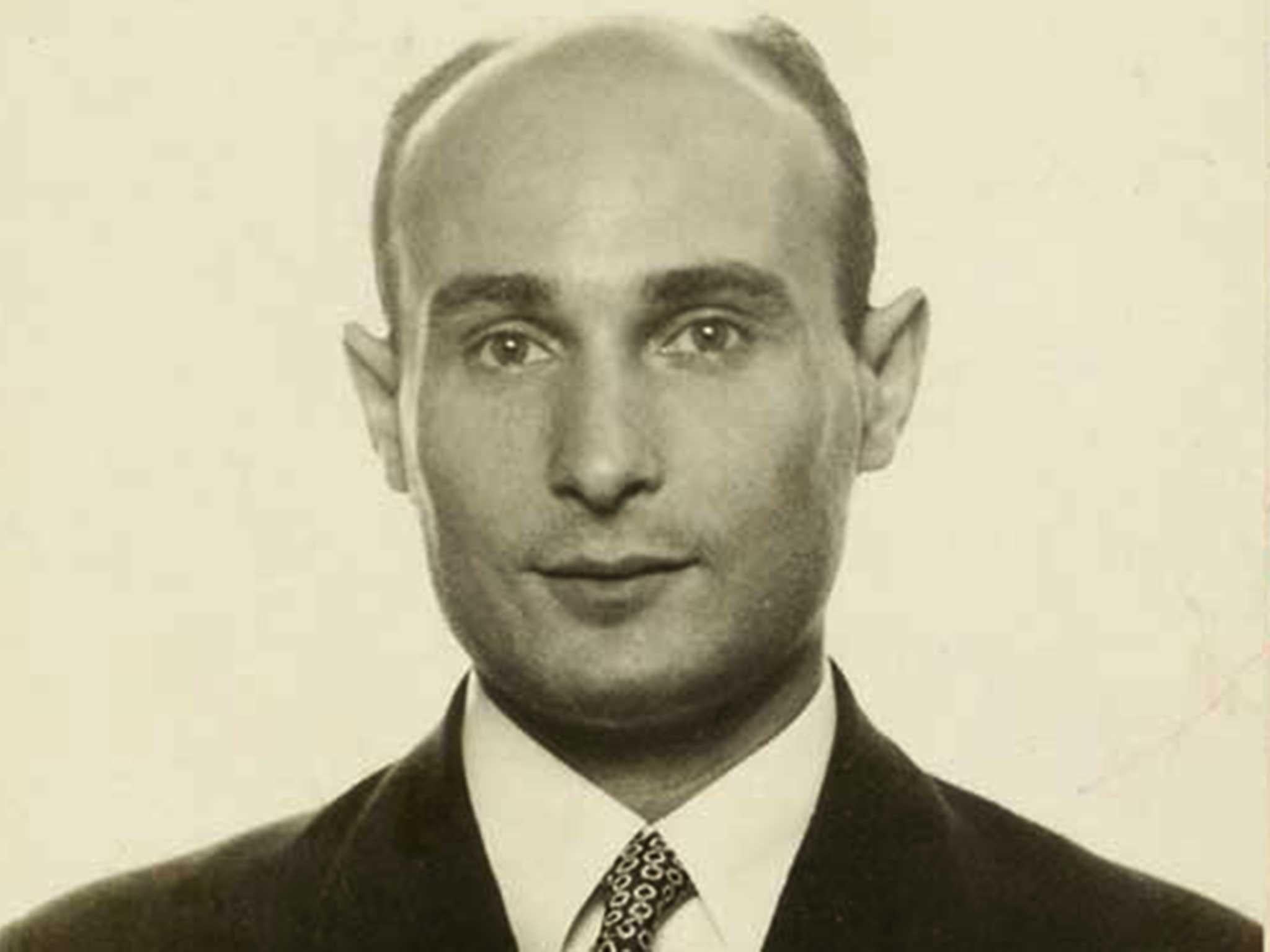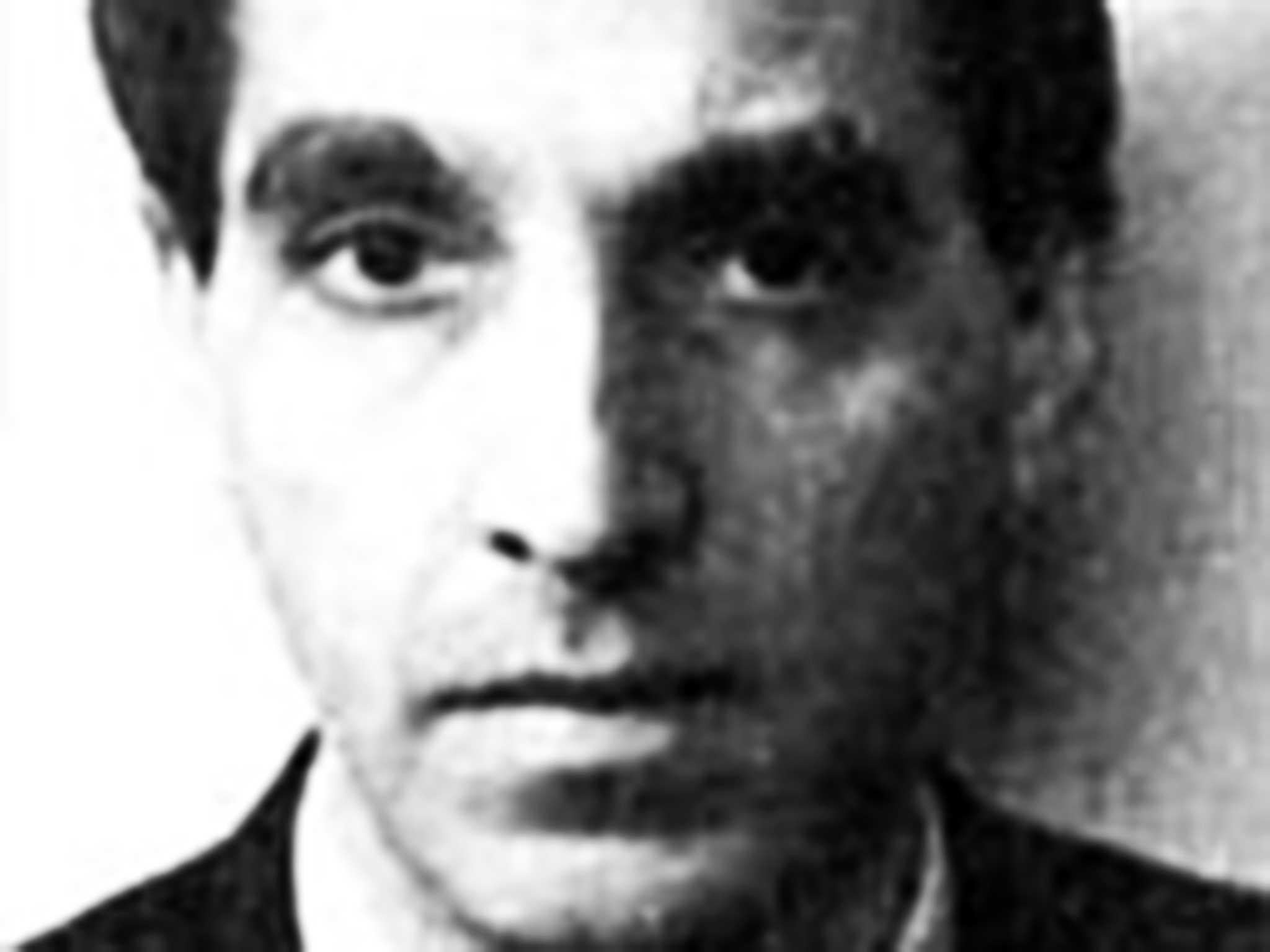How Britain’s best anti-Nazi double agent was nearly deployed against Communist Russia
After he helped defeat Adolf Hitler, plans were made to use double agent 'Garbo' in the looming Cold War against Joseph Stalin

Your support helps us to tell the story
From reproductive rights to climate change to Big Tech, The Independent is on the ground when the story is developing. Whether it's investigating the financials of Elon Musk's pro-Trump PAC or producing our latest documentary, 'The A Word', which shines a light on the American women fighting for reproductive rights, we know how important it is to parse out the facts from the messaging.
At such a critical moment in US history, we need reporters on the ground. Your donation allows us to keep sending journalists to speak to both sides of the story.
The Independent is trusted by Americans across the entire political spectrum. And unlike many other quality news outlets, we choose not to lock Americans out of our reporting and analysis with paywalls. We believe quality journalism should be available to everyone, paid for by those who can afford it.
Your support makes all the difference.MI5 secretly drew up plans in the dying days of the Second World War to turn one of their top anti-Nazi agents against Stalin's Russia, according to newly released official files.
Juan Pujol Garcia codename Agent Garbo, has been described on MI5’s own website as “the greatest double agent of the Second World War.
On his own initiative, the industrialist’s son from Barcelona approached the Germans and tricked them into thinking he wanted to spy for them.
He went to England, working with MI5 to create a whole network of entirely imaginary agents and feeding misinformation to the Nazis, culminating in the ultimate triumph: a leading role in securing the success of the D-Day landings by convincing the Germans the main invasion would happen around Calais, not in Normandy.
So convincingly did he lie to the Nazis that in July 1944 a totally fooled Adolf Hitler awarded Pujol the Iron Cross for “extraordinary services” to Germany.
Even before victory over Hitler was complete, however, papers released by the National Archives show MI5 was anticipating how Agent Garbo could be used in a new struggle, against Britain's supposed Soviet allies, in the looming Cold War.
On May 25 1945, Pujol's case officer, Tomas “Tommy” Harris, presented an elaborate plan to lay the ground for Russian intelligence to recruit him as one of their agents - while he would actually be working for MI5.
With Pujol due to return to his native Spain, it was suggested he should write anonymously to the Soviet military attache in London revealing his work as a British agent but saying he had he become disillusioned as he had thought an Allied victory would lead to ousting of General Franco, the Spanish dictator.
"He will say that having fulfilled his part of the bargain with the British, it was now apparent that the latter were not only avoiding steps which might bring about Franco's overthrow but were maintaining him in Spain," Harris wrote.
"As proof of his bona fides he would give them his cipher and transmitting plan so that they could monitor the British controlled traffic of his notional agents during his absence."
The letter would lay the bait for a second approach - possibly years later - when, if all went to plan, Pujol's recruitment as a Soviet agent would be complete.
"In this event we have sown the seed so that if, at a far distant date, Garbo should make contact with the Russians, probably somewhere abroad, he would be able to identify himself as the author of the letter written in London which would no doubt be available for reference," Harris wrote.
"Thus it is envisaged he would have a greater chance of getting himself quickly and firmly recruited than might otherwise be possible."
Harris admitted it was impossible to foresee exactly how Pujol would be used against the Russians, but he was confident that the scheme offered significant potential.
"If the information which we would be imparting to the Russians as envisaged in the first phase of the this plan were instrumental in creating a high grade Russian double agent who at the same time might continue to operate as a German double agent, the possibilities of valuable work being achieved would be considerable," he wrote.
In the event, however, it appears the idea was not followed up. The plan, however, is all the more intriguing given that rumours have long swirled around Harris and where his true loyalties lay.
Harris was helped to secure a job with MI5 in 1941 by Anthony Blunt, later the Surveyor of the Queen’s Pictures, who in 1964 confessed to having been a Soviet spy.

Described by one MI5 acquaintance as “an enchantingly enigmatic character”, Harris is also said to have helped the Soviet double agent Kim Philby secure work with MI5.
He was also said to have been close to Guy Burgess, another member of the so-called Cambridge Five spy ring.
No hard evidence has been produced, but some have speculated that Harris had in fact been a Soviet spy. In January 1964, a year after Kim Philby fled to Moscow after being exposed as a Soviet agent, Harris died in a suspicious car crash in Majorca.
Harris, who lived in Majorca, had been driving along a familiar stretch of road, and had not been drinking or speeding, yet his car hit a tree.
In his book Their Trade is Treachery, the espionage historian Chapman Pincher speculated that Soviet assassins deliberately tampered with Harris’ car to kill him in what would look like an accident.
He wrote: “The police could find nothing wrong with the car, but Harris's wife, who survived the crash, could not explain why the vehicle had gone into a sudden slide. It is considered possible, albeit remotely, that the KGB might have wanted to silence Harris before he could talk to the British security authorities.”
By contrast, with the plan to use him against the Soviets apparently coming to nothing, Agent Garbo’s later life seems to have been far less dramatic.
After the war, fearing reprisals from surviving Nazis, he was helped by MI5 agents to travel to Angola, where he is believed to have faked his death from malaria in 1949.
He then moved in Venezuela, where according to some accounts, he lived quietly, teaching Spanish to expat oil executives and running a shop selling books, newspapers, gifts and small electrical goods.
He died in Caracas in 1988, aged 76.
Join our commenting forum
Join thought-provoking conversations, follow other Independent readers and see their replies
Comments